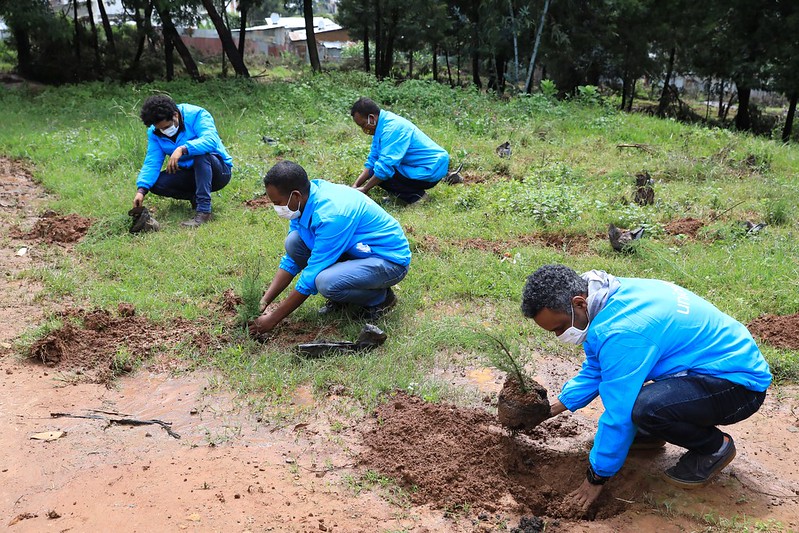The world has a history of using nature to help repair crises; in 1993, US President Franklin D. Roosevelt allocated USD$10 million for emergency conservation efforts under the New Deal. In South Korea, a famine and refugee crisis in the 1950s saw the government restoring forests and farmland, which created hundreds of thousands of jobs. Similarly, the COVID-19 pandemic is seeing nations use nature restoration to create jobs to kickstart their economies. Here’s how seven countries are looking to repair nature by including restoration commitments in their COVID-19 recovery plans.
—
France
One of the countries looking to repair nature as part of their COVID-19 recovery plans is France. About one-third of France’s $120 billion recovery package is devoted to greening the economy. The country is investing in clean buildings, industry and transport, and it is also allocating resources for the “agro-ecological transition” of agriculture. This includes training and tax credits for organic farmers, replanting and restoring hedges along field boundaries and supporting locally-based food systems and urban farming.
Kenya
Nairobi has hired families struggling from the pandemic to clean up its parks and waterways, the benefits of which are already being seen: over 1 000 tons of rubbish have been removed and fish are returning to the Nairobi River.
Ireland
The nation has allocated $18 million to rehabilitate over 30 000 hectares of degraded peatlands. This project is aimed at improving and increasing the area of wetlands for endangered species and reducing greenhouse gas emissions.
Colombia
The government is planning to plant 180 millions trees, 50 million of which should be planted before the end of the year. The package includes funds to promote agroforestry and agropastoralism, both of which can restore soils and ecosystems. The government also plans to tighten mining regulations.
You might also like: Singapore Plans to Plant A Million Trees by 2030
Pakistan
The country has hired tens of thousands of people who lost their jobs during COVID-19 lockdowns to plant saplings, including mulberry and acacia trees. The government exempted the 10 Billion Tree Tsunami initiative from some lockdown restrictions.
Ethiopia
The country is planning to plant 5 billion seedlings in 2020, in an effort to double its forest cover by 2030. Ethiopia has focused on forest restoration to create green jobs, improve the health of its citizens and kickstart an economic recovery from COVID-19. Last year, the country planted over 350 million trees in one day, a world record.
United Kingdom of Great Britain and Northern Ireland
The UK plans to invest up to $52 million in a “Green Recovery Challenge Fund,” which will help create or safeguard up to 5 000 jobs in nature conservation and restoration. The UK is also developing a system to assess its natural capital to improve its understanding of habitats and provide better guidance for decision making.
Inger Andersen, Executive Director of the United Nations Environment Programme, says, “A green recovery is one that tackles the climate, biodiversity and pollution crises at the same time.”
Restoring nature is one of the core objectives of the UN Decade on Ecosystem Restoration, a global push to repair lands lost to development, that is set to begin in 2021.
Featured image by: Flickr

















